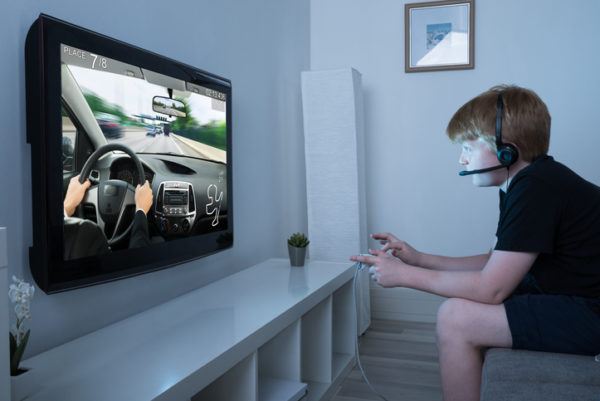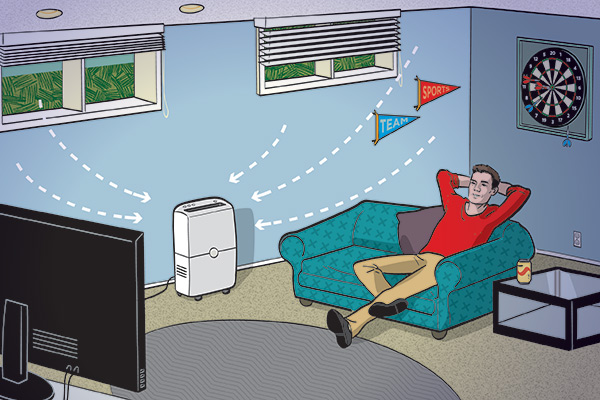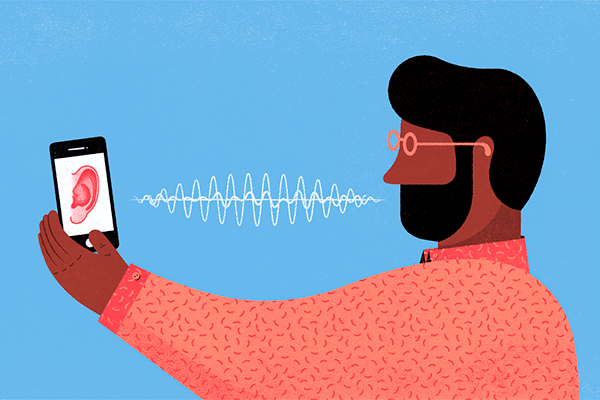Video games are often dismissed as unsophisticated or the domain of couch potatoes, but did you know that many common elements of these simulated worlds can provide tangible benefits in real life? Benefits of video games for both children and adults include:
- Healthy brain stimulation
- Development of problem-solving skills
- Stress relief
Learn more about the benefits of video games before firing up your favorite computer or console game.
 1. Video games can improve manual dexterity.
1. Video games can improve manual dexterity.
Controller-based games can be great for your hands. In a study involving a group of surgeons, researchers found that those who played video games were faster at performing advanced procedures and made 37 percent fewer mistakes than those who didn’t. Special video games have also been used as physical therapy to help stroke victims regain control of their hands and wrists.
2. Video games can increase your brain’s gray matter.
Gaming is really a workout for your mind disguised as fun. Studies have shown that playing video games regularly may increase gray matter in the brain and boost brain connectivity. (Gray matter is associated with muscle control, memories, perception, and spatial navigation.)
3. Gamers may have better social skills.
The stereotype of a shy person who uses video games as a way to escape is not what the average gamer looks like. Past research involving children found that those who played more video games were more likely to have good social skills, perform better academically, and to have built better relationships with other students because of the social and collaborative component to some types of games.
4. Games can teach you to be a better problem solver.
Open-world, mission-based, and multi-level games are designed like complex puzzles that take several hours to solve. Occasionally, the solution varies based on your actions in the game. Learning to think on your feet and strategize in a fast-paced fantasy environment is a skill that can translate to the real world. One long-term study published in 2013 showed that children who played strategy-based games showed an improvement in problem-solving skills—and thus, tended to get better grades—the next school year.
5. You can become more physically active as a gamer.
Most major consoles now have the technology to get gamers off of the couch and onto their feet. The future of VR gaming will take things to a whole new level. Mobile game programmers have also started to create games that are played across physical space, building them around real-world location data and inspiring gamers to relocate in order to advance in the virtual world.
6. Video games can improve your vision.
As long as you’re not staring at the screen for 10 hours straight (or sitting two feet away), playing video games can actually make for better vision. In one study, 10 male students who were not gamers were trained for 30 hours in first-person action games and then tested against 10 non-gamers. The students who played were able to see objects more clearly in cluttered spaces because of improved spatial resolution. They were able to train their brains to see smaller details, because in each game, those details turned out to be important.
7. Video games can have mental health benefits.
Studies have shown that some video games can boost mood and make for better heart rhythms—a sign that they may also help relieve stress. The correlation (not causality) between video games and stress has been reflected in numerous unrelated studies, which is why video games have been used in therapy for over a decade.
8. They’re a fun way to get tricked into learning.
There are videos games on just about everything. Early on, developers realized that video games could be used to improve reading and math skills. Today, there are games that incorporate world history, cooking, politics, chemistry, architecture, and other topics you may not have been exposed to in school.
9. Video games can inspire you to be more persistent.
With video games you either win or you keep trying, learning from your mistakes as you progress until you reach the goal. Because of this, some researchers and educators argue that video games can teach people to be more confident and to work towards their goals, treating each misstep as just another learning opportunity.
Worried about protecting personal items like a video game console? Your console and other gaming equipment could be covered with a renters insurance policy from GEICO!











S gaming says,
Gaming is actually the future.
Gamerman123 says,
parents will never understand this… 🙁
Smoozle says,
I agree
chocolategamer says,
but …… indian parents will never understand this thing :((((((((
hiiii says,
true
Tatti says,
Yes
Vedant says,
Really This Is True
Gramma Robin says,
Video games are here to stay. Kids are no longer safe on the streets. Covid is no longer safe around kids. Home schooling is rampant and preferred. I T is the future. No kid that plays no video games can hold a candle to the swift hammer down on the bad guys or the catching jumping running shooting and moving quickly . How to get out fast or get in. Skills taught by gaming like flying a jet or any machine. This is the future. Its what will be the big money someday.
Henrik says,
The biggest criticism I have of video games is that they pull you away from reality into an unreal universe where you never really die or get injured, you can kill repeatedly without any consequences, etc. Real problems of real life are escaped but never solved. You’ll never learn to build a real house or a real city. you don’t have to pay rent or mortgage or obtain nutrition or get enough sleep in a lot of video games so the skills gained don’t translate to real life in a lot of instances. So a little bit of video gaming? okay but hours a day and… you gonna be playing video games when you’re 55?
Henrik says,
All these points would be valid if all you did instead was pick your nose or something else useless. But if you played basketball or soccer instead or participated in a debate team or a chess club or swimming or hiking or throwing rocks into a pond or building a tree house or bicycling or building with construction sets or reading a book…I could go on for ever… you may get these same benefits and more without the harms. I’m not saying playing video games is all bad, but it does displace other activities and that must be taken into consideration.
AdderTude says,
Actually, plenty of elderly people play video games, and some even stream on Twitch.
Shirley Curry, aka Skyrim Grandma, is an avid player of The Elder Scrolls V: Skyrim, and her story not only went viral, but she was invited by Bethesda to have her likeness scanned into a 3D model so she can appear as an NPC in the next game, The Elder Scrolls VI.
Additionally, you focus solely on the entertainment value of gaming and not other applications of game development. In 2011, scientists were having trouble trying to piece together an enzyme from an AIDS-like virus, and had been trying to do so for years. Players using the protein folding puzzle game Foldit solved the sequence in three weeks. Lucasfilm uses the rendering technology Unreal Engine 4, a software suite primarily for making games, to make the backdrops for The Mandalorian instead of conventional 3D software that the film industry uses.
Regarding your rather ignorant statement of “All these points would be valid if all you did instead was pick your nose or something else useless,” a lot of athletes play games as well. In fact, Jeremy Lin (formerly of the Knicks and now with the Beijing Ducks) appeared on the documentary Free To Play drawing similarities between physical sports and esports. You also seem to strongly imply that gamers are nothing but fat, lazy people.
Henrik says,
1. Video games can improve manual dexterity.
In comparison to what? Basket weaving? Picking your nose? Doing nothing with your hands?
2. Video games can increase your brain’s gray matter.
Again, as opposed to what? Playing chess? Solving puzzles? Reading books? Will these activities that playing video games replaces not increase gray matter? Hanibal Lechter had more gray matter as well. he used it for evil (just an example).
3. Gamers may have better social skills. This one is a little harder to criticize. Perhaps there is something to this. But Does being on a soccer team not improve social skills? or being on a debate team or being in a choir or a church group or a chess club? All these points may be valid if you do nothing at all instead of playing video games.
4. Games can teach you to be a better problem solver.Again, as opposed to what? does playing soccer not do this? Or climbing a hill? Or building a tree house? you spend time in front of a screen! That time is lost from other activities that could benefit you more!
5. You can become more physically active as a gamer. And you can’t as a dancer? This is only true if you do nothing else instead.
6. Video games can improve your vision.
Soccer and basketball don’t? Baseball? Throwing rocks? Bird watching? Astronomy?v Solving visual puzzles? Again, this is only valid if you just sit around instead!
I’m not saying Video games are all bad. But lets get a little perspective here. I have nothing against maybe an hour of video games a day, but not when it becomes the only thing kids or grown ups do.
AdderTude says,
“I’m not saying Video games are all bad.”
You kind of are, actually. Your comments show that you didn’t actually read the paragraphs under each heading and simply made assumptions based on your own preconceived notions about gamers, not to mention you strongly imply that gamers are fat and lazy.
Declan says,
not all gamers are fat I’m not and I have been playing games all my life
EggsBennie9 says,
Each of these is just comparing to the average human being who doesn’t play games, point #6 states this. 10 had played games for 30 hours, and the others did not. In #5 they aren’t criticizing people who don’t play the games, they are simply saying that they are becoming more physically active. Pokemon GO made people go outside and walk around to play their game. Hundreds of other games have begun implementing this feature. In #4 they are once again comparing to someone who doesn’t play games. In #3, when talking to someone over the internet, they aren’t right in front of you staring at you, which will make you awkward. Instead, they could be on the other side of the world, and you can instantly bond with them because you are doing the same thing, almost like a soccer team, or a debate club. For myself and other people who also have autism, I can’t make eye contact, and talking directly to someone’s face is really hard. Talking to someone who you can’t see makes the entire experience more bearable. After that, we can become more capable of talking to other people. I work at the front desk of a dealership, and I can just talk to people now. Mainly because of the 6-8 years of practice I’ve had from playing video games. For #2, we tend to lose interest in most things because it can become repetitive after our 5th or 6th game. After your 80th book, what is left to read? Another 200 pages of the same thing, just in a different order? I typed “Action Games” into google and it gave me 32 different games from different companies that are entirely different from one to the next. One was Red Dead Redemption 2, an incredible game based in 1899. Then it was For Honor, a PvP based game set in the 1600s. Then it was Doom Eternal, a game where you fight literal demons and destroy the Lords of Hell. Most of these games can also teach me things about history that I didn’t know before.
Muhammad Ahmad says,
Thanks
Archie + Logan says,
Thanks for the top marks
matthew says,
true !
rockstars says,
very good
Minecraft GOD says,
im doing a assignment and this helps
Declan says,
Same lol
Tankman says,
They are just good
Gerald says,
doing a speech and this is very helpful so thanks.
no saying my name, person says says,
I am doing a debate for school and this article has helped a LOT!!! Thanks